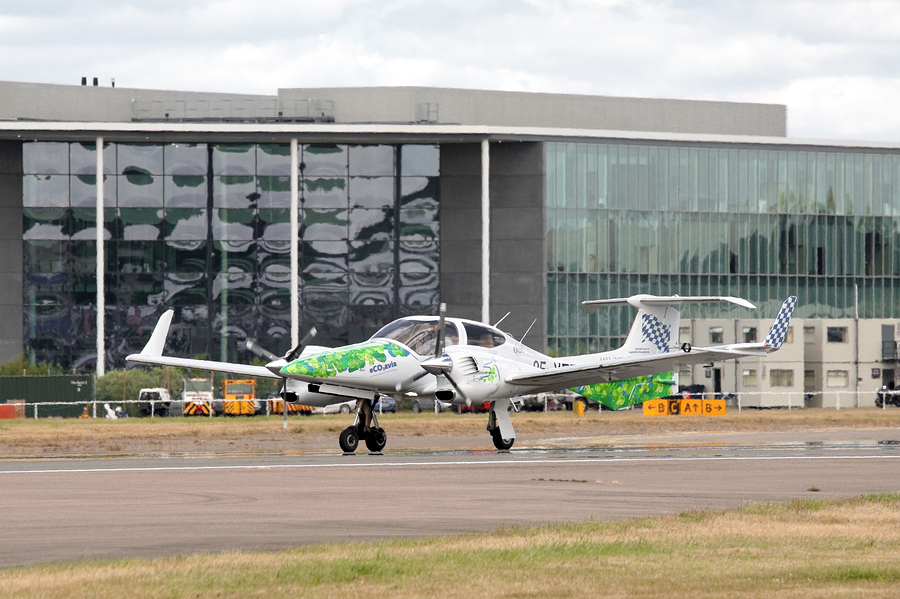by Debra Fiakas CFA
 |
| Algae powered plane photo via BigStock |
No one has been more disappointed than me in the failure of algae-based biofuel operations to achieve commercial production – at least so far. The model is beguiling: feedstock for biofuel production in the form of oils produced by simple and widely available algae that can thrive on carbon dioxide, an otherwise be a toxic emission. However, scale seems to have eluded algae-base biofuel producers.
GreenShift Corp. (GERS: OTC/BB) recently shifted its focus to corn oil extraction to serve ethanol producers hungry for a process efficiency. Earlier this year Valcent Products changed its name to Alterrus Systems, Inc. (ASIUF: OTC/BB) turned to vertical farming. Green Star Products (GSPI: OTC/PK) was already sidelined last year and is now concentrating on new product testing and certifications and is introducing a line of lubricants. PetroSun (PSUD: OTC/PK) claims it has not abandoned its microalgae and macroalgae interests, but its focusing on energy sources that can be a “bridge” to renewable fuels.
OriginOil (OOIL: OTC/BB) is not exactly producing biofuel. However, it has found alternative commercial applications for its technology and expertise. OriginOil has developed an energy production process for cleaning up oil and gas water. OriginOil is marketing its technology to oil and gas operators using hydraulic fracturing. A partner in Japan is also deploying the OriginOil’s algae harvesting technology in a novel process to clean up radioactive materials.
We were nearly ready to delete the Algae Group from our Beach Boys Index. Then Germany’s air carrier Lufthansa came flying in with a press release, announcing its plans to build “a large-scale algae-to-aviation biofuels production facility in Europe.” Lufthansa has partnered with Australia’s Algae-Tec Ltd. (ALGXY: OTC/PK or AEB: ASX), a developer of algae-based biofuel technologies, and has agreed to foot the bill for the facility, but has so far been mum on the cost. Algae-Tec will run the facility.
The commitment of a large company like Lufthansa to such an undertaking is impressive. The air carrier had previously run several test flights using biofuel but complained about inadequate biofuel supplies.
Commissioning and running the biofuel plant for Lufthansa will not be a maiden voyage for Algae-Tec. Just two months ago the developer opened a new algae-based biofuel plant in Australia’s New South Wales. The company claims to have perfected a “high-yield, enclosed and scalable algae growth and harvesting system.”
One of the attractive elements to the Algae-Tec system is reliance on carbon emissions as feed for the algae. I noted that Lufthansa’s announcement made much of the emissions savings and that the location of the plant in Europe would depend upon finding a reliable source of carbon. They should have little difficulty in finding a partner willing to give up carbon.
It will take some months to find out whether Algae-Tec’s system will take flight with Lufthansa. However, after the many delays algae-biofuels investors have experienced already, a bit more time on the tarmac should not be a problem.
Debra Fiakas is the Managing Director of Crystal Equity Research, an alternative research resource on small capitalization companies in selected industries.
Neither the author of the Small Cap Strategist web log, Crystal Equity Research nor its affiliates have a beneficial interest in the companies mentioned herein.








